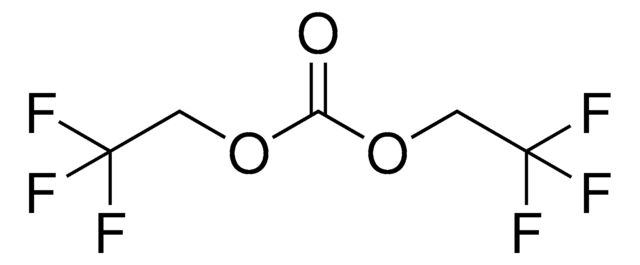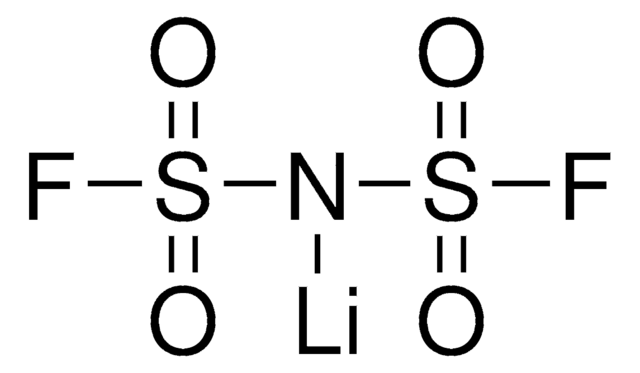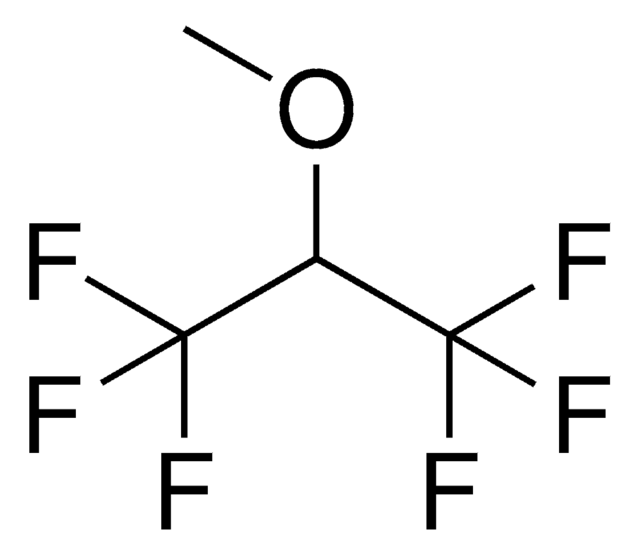933988
1,1,2,2-Tetrafluoroethyl 2,2,2-trifluoroethyl ether
≥99.5%, anhydrous, acid <=100 ppm, battery grade
Synonyme(s) :
1,1,2,2-tetrafluoro-1-(2,2,2-trifluoroethoxy)ethane, HFE-347, TFTFE
About This Item
Produits recommandés
Qualité
battery grade
Niveau de qualité
Pureté
≥99.5%
Forme
liquid
Caractéristiques du produit alternatif plus écologique
Design for Energy Efficiency
Learn more about the Principles of Green Chemistry.
sustainability
Greener Alternative Product
Impuretés
≤100 ppm acid (HF)
≤250 ppm H2O
non-volatile residue (NVR)
≤10 ppm
Point d'ébullition
56 °C
Pf
-91 °C (lit.)
Densité
1.49 g/mL
Application(s)
battery manufacturing
Autre catégorie plus écologique
Description générale
Application
Mention d'avertissement
Warning
Mentions de danger
Conseils de prudence
Classification des risques
Eye Irrit. 2 - Skin Irrit. 2
Code de la classe de stockage
10 - Combustible liquids
Classe de danger pour l'eau (WGK)
WGK 3
Point d'éclair (°F)
Not applicable
Point d'éclair (°C)
Not applicable
Certificats d'analyse (COA)
Recherchez un Certificats d'analyse (COA) en saisissant le numéro de lot du produit. Les numéros de lot figurent sur l'étiquette du produit après les mots "Lot" ou "Batch".
Déjà en possession de ce produit ?
Retrouvez la documentation relative aux produits que vous avez récemment achetés dans la Bibliothèque de documents.
Notre équipe de scientifiques dispose d'une expérience dans tous les secteurs de la recherche, notamment en sciences de la vie, science des matériaux, synthèse chimique, chromatographie, analyse et dans de nombreux autres domaines..
Contacter notre Service technique








